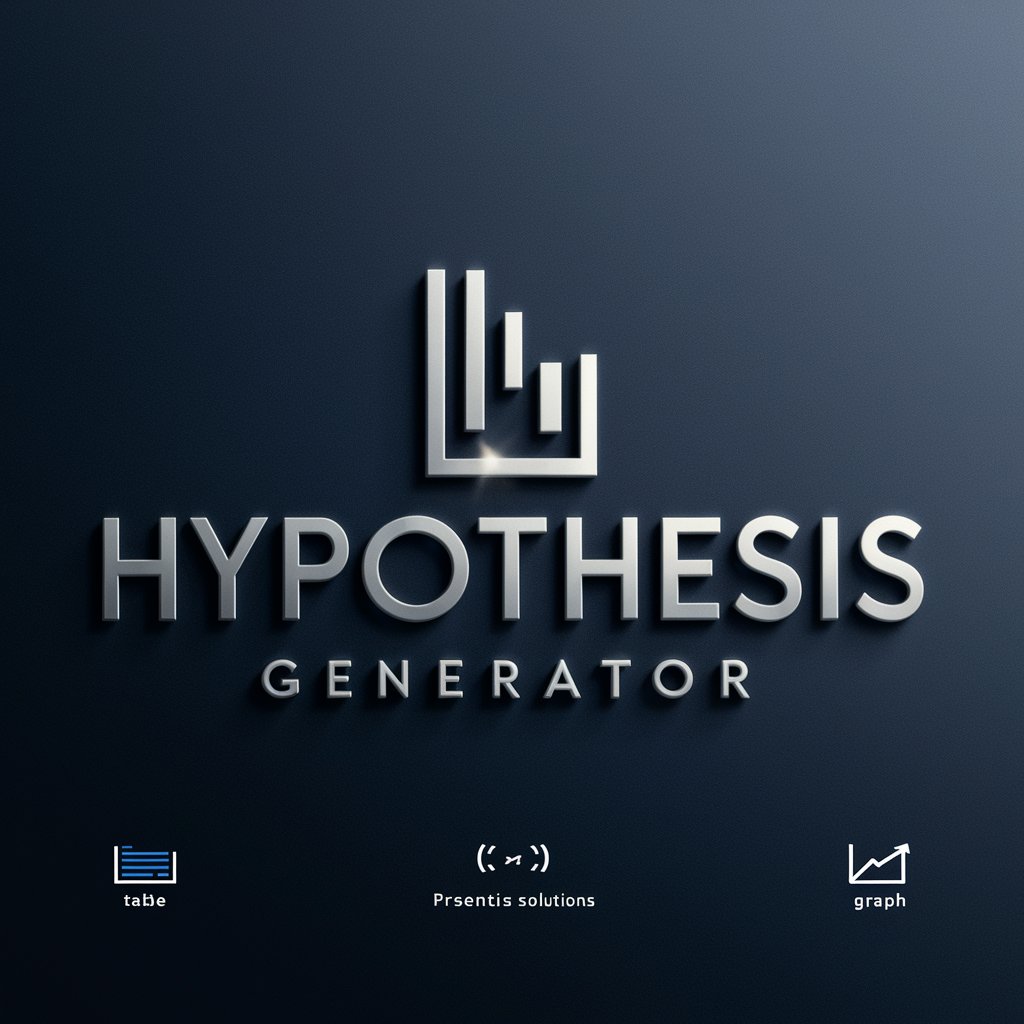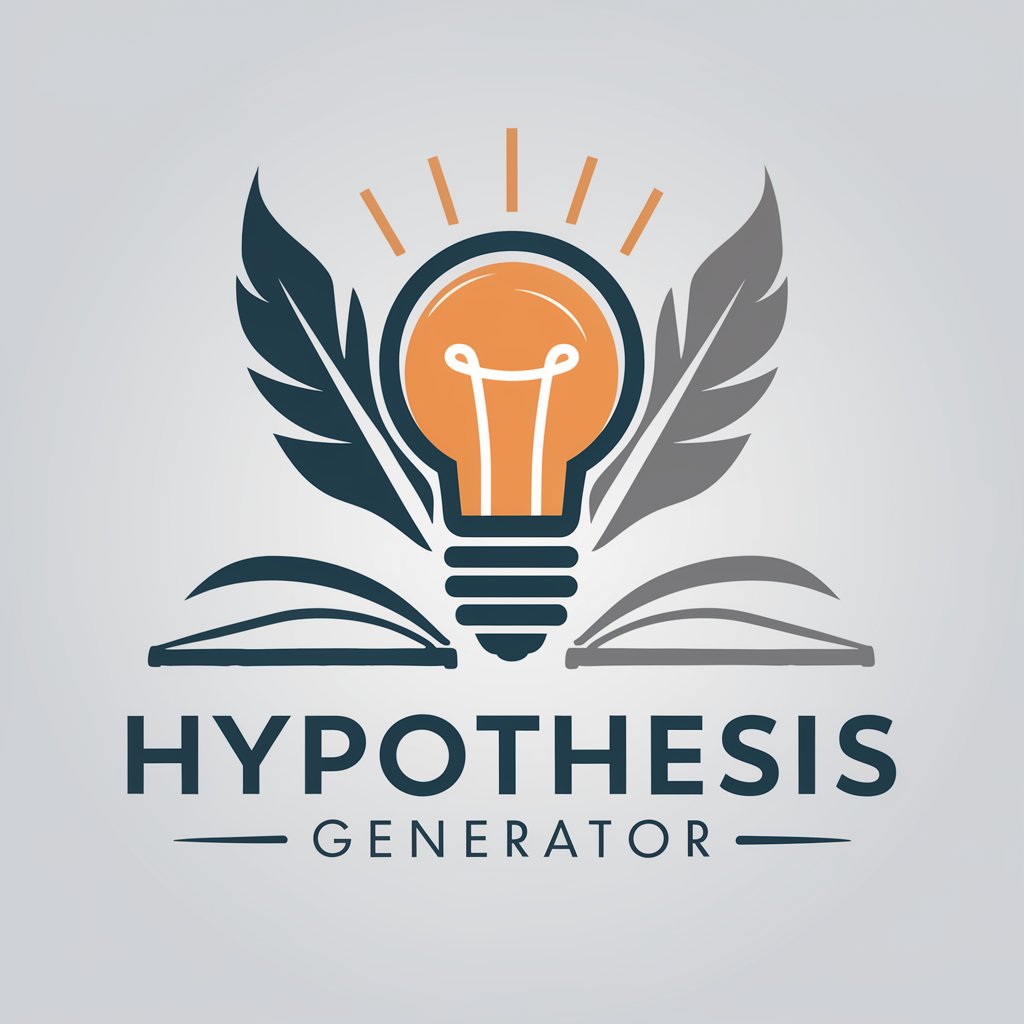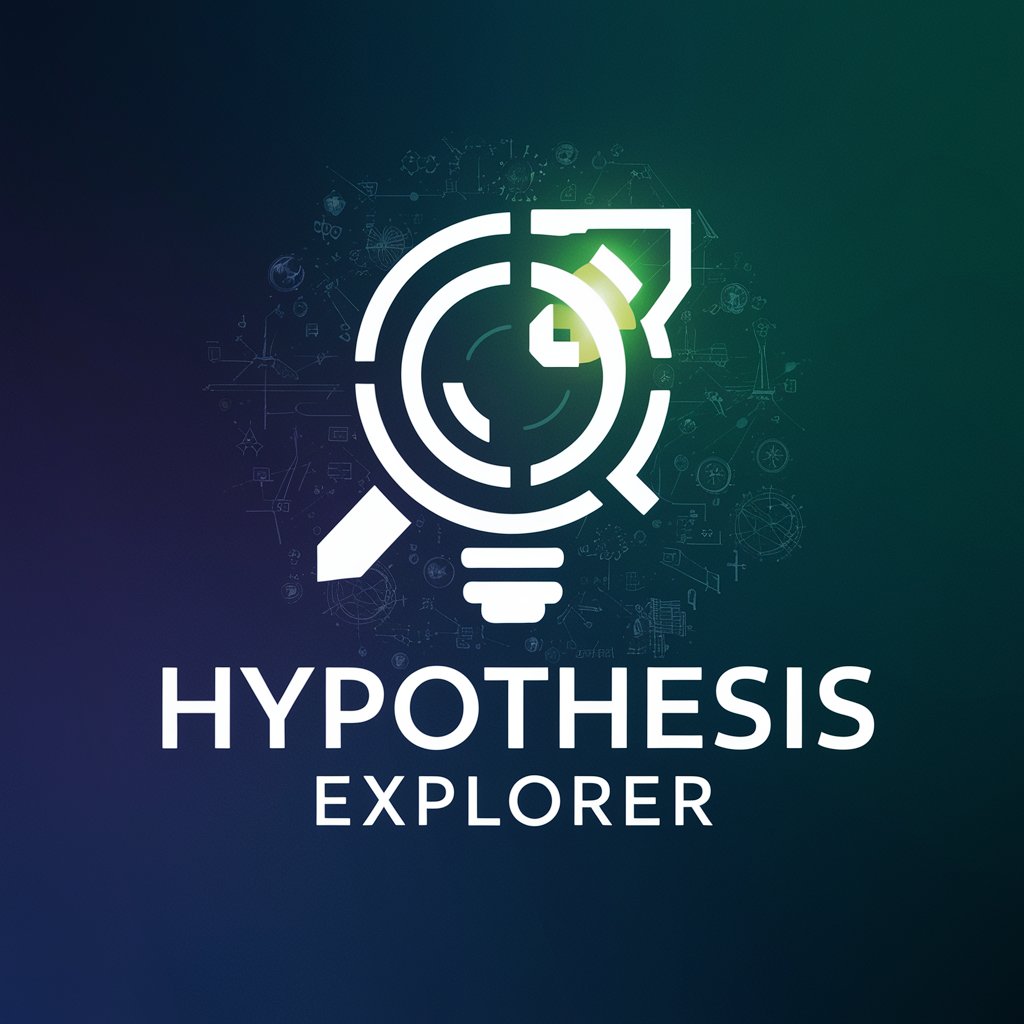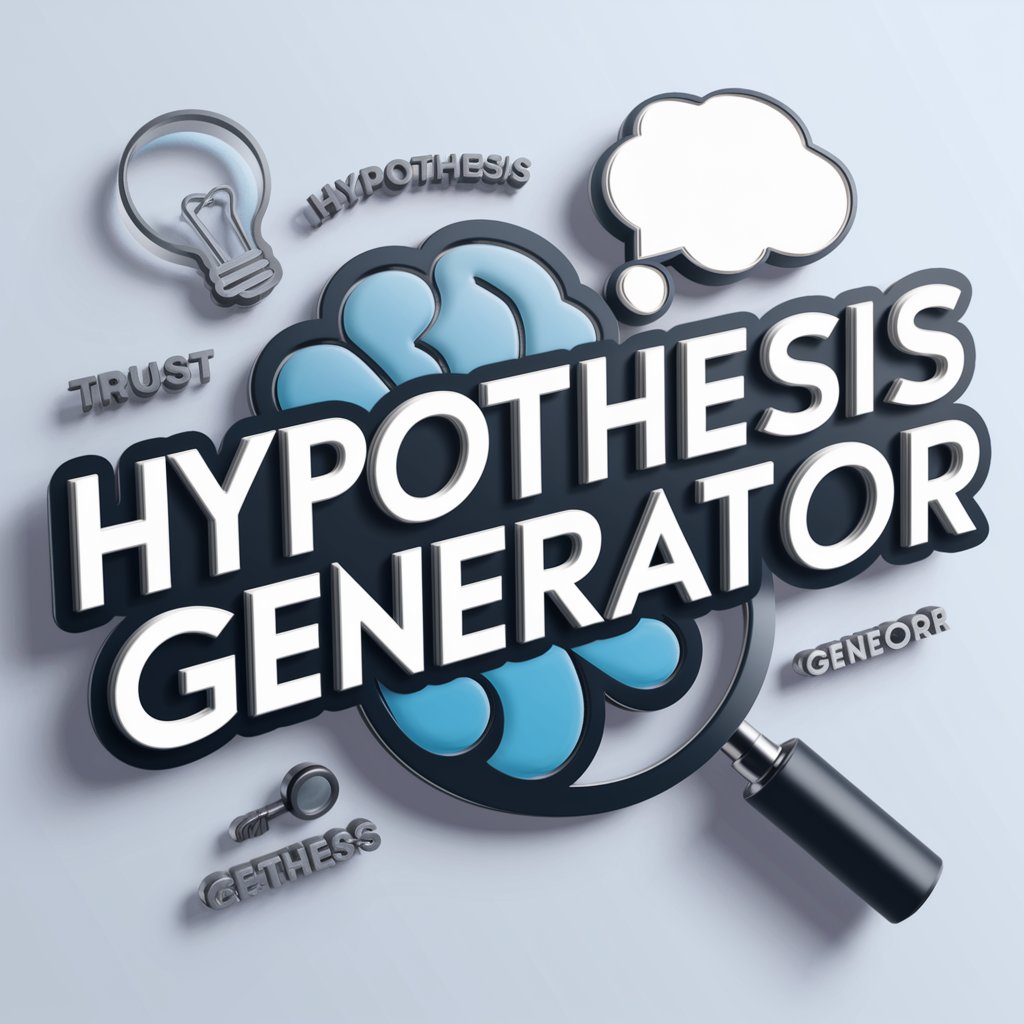
Hypothesis Harvester - Hypothesis Analysis Tool
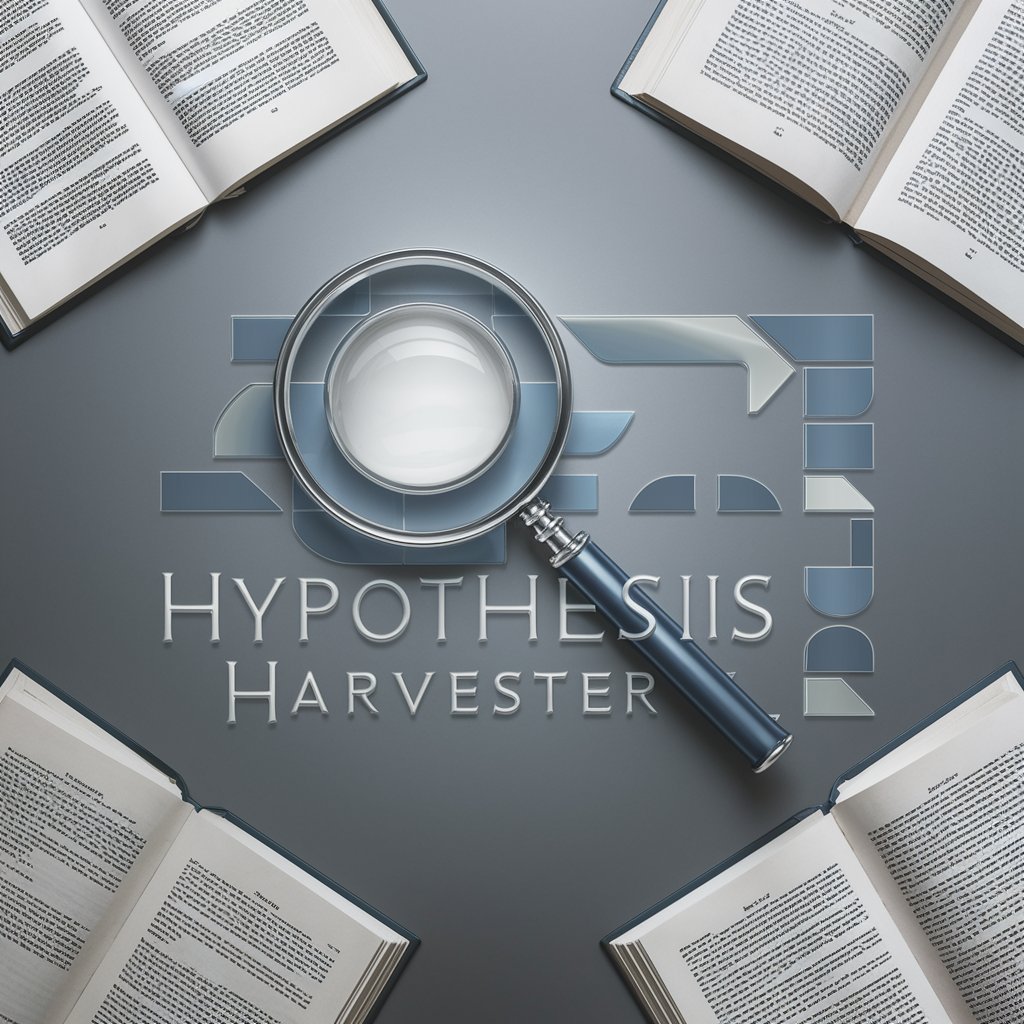
Welcome! How can I assist with your hypothesis analysis today?
Unveiling research insights with AI
Can you summarize the key hypotheses in the following academic paper on...
Please identify the main hypothesis, cause, and effect from this research study on...
What are the mediators and moderators mentioned in the hypothesis section of this paper about...
Analyze the empirical relationships and their significance in the hypotheses presented in this study on...
Get Embed Code
Introduction to Hypothesis Harvester
Hypothesis Harvester is a specialized AI designed to parse and interpret academic papers, specifically focusing on identifying and summarizing hypotheses. It is equipped to dissect complex academic texts, extracting key elements such as the hypotheses, causes, effects, moderators, mediators, and the nature or direction of relationships within the studies. The tool interprets the significance and implications of empirically observed relationships and presents this information in structured formats, aiding in the understanding and analysis of academic findings. An example scenario could be analyzing a paper on the effects of social media on anxiety, where Hypothesis Harvester would identify the main hypothesis (e.g., 'Increased social media usage leads to higher anxiety levels'), break down the cause (social media usage) and effect (anxiety levels), and outline any identified moderators or mediators (e.g., age or social support). Powered by ChatGPT-4o。

Main Functions of Hypothesis Harvester
Hypothesis Identification
Example
Extracting the hypothesis 'Increased social media usage leads to higher anxiety levels' from a psychological study.
Scenario
In academic research review, where users need to compile and compare hypotheses across multiple studies.
Detailed Analysis
Example
Dissecting the relationships between variables, identifying cause and effect, and highlighting any moderators or mediators.
Scenario
Used by researchers preparing literature reviews or meta-analyses, aiding in the synthesis of existing research findings.
Significance Interpretation
Example
Evaluating the empirical significance of relationships, such as determining the strength and direction of the relationship between social media use and anxiety.
Scenario
Applied by statisticians or data scientists analyzing data outcomes and results sections of academic papers.
Structured Information Presentation
Example
Organizing extracted hypotheses and analyses into structured formats for easy comparison and review.
Scenario
Utilized by educators and students compiling research findings for educational purposes or academic assignments.
Ideal Users of Hypothesis Harvester Services
Academic Researchers
Researchers who need to analyze multiple papers and synthesize information across studies would benefit from Hypothesis Harvester's ability to quickly extract and organize hypotheses and variables.
Students
Students conducting literature reviews or needing to understand complex hypotheses in academic papers would find Hypothesis Harvester valuable for simplifying and structuring complex information.
Data Scientists and Statisticians
Professionals requiring detailed analysis of relationships within academic research, such as causality, moderators, and mediators, would benefit from the structured breakdown of empirical findings.
Educators
Teachers and professors looking to present research findings in a structured, digestible format to students, or who need to evaluate a wide range of literature, could use Hypothesis Harvester to streamline their preparation.

How to Use Hypothesis Harvester
1
Start by visiting yeschat.ai for an immediate, free trial, no ChatGPT Plus required.
2
Provide a specific topic or document for analysis, focusing on your research question or area of interest.
3
Specify your question or request related to the hypothesis in the document, including any particular aspect like cause, effect, or relationship you're interested in.
4
Review the analysis provided, which includes extracted hypotheses, their implications, and potential moderators or mediators.
5
Use the feedback mechanism to refine your queries or provide more detail, enhancing the relevance and accuracy of the information provided.
Try other advanced and practical GPTs
[CRO Discovery] A/B test Hypothesis Generator
Optimize conversions with AI-driven hypotheses
![[CRO Discovery] A/B test Hypothesis Generator](https://r2.erweima.ai/i/91zxFAOjSH2UeO88BK3QWA.png)
Mathematical Universe Hypothesis Analysis Bot
Exploring universes through mathematics.

Hypothesis Generation for Antigravity Concepts
AI-powered antigravity hypothesis generation and exploration.

Quantum Biology Hypothesis Generator
Sparking Quantum Insights in Biology
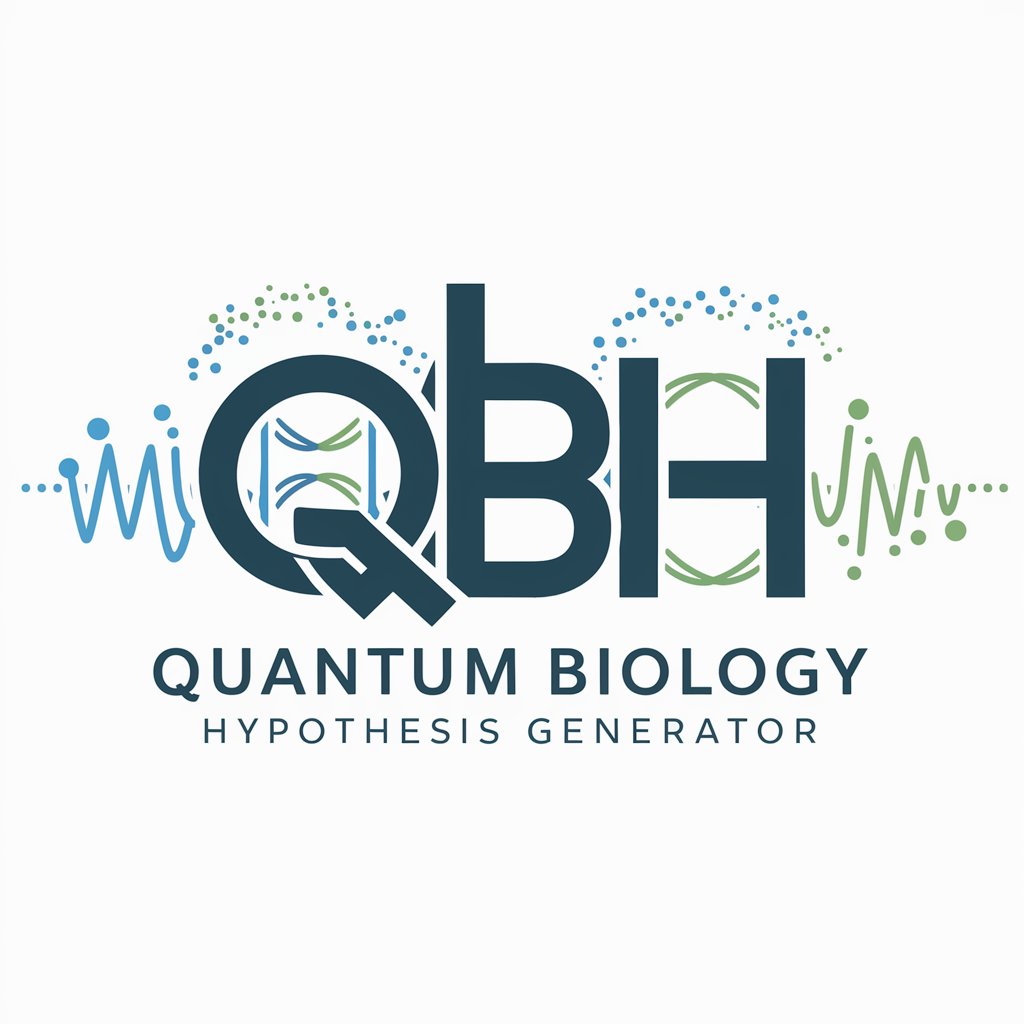
AI in Automotive and Transportation GPT
Driving innovation with AI-powered insights

Canadian Transportation Engineer
AI-powered Transportation Engineering Insights

Random Hypothesis Generator
Spark creativity with AI-generated hypotheses.
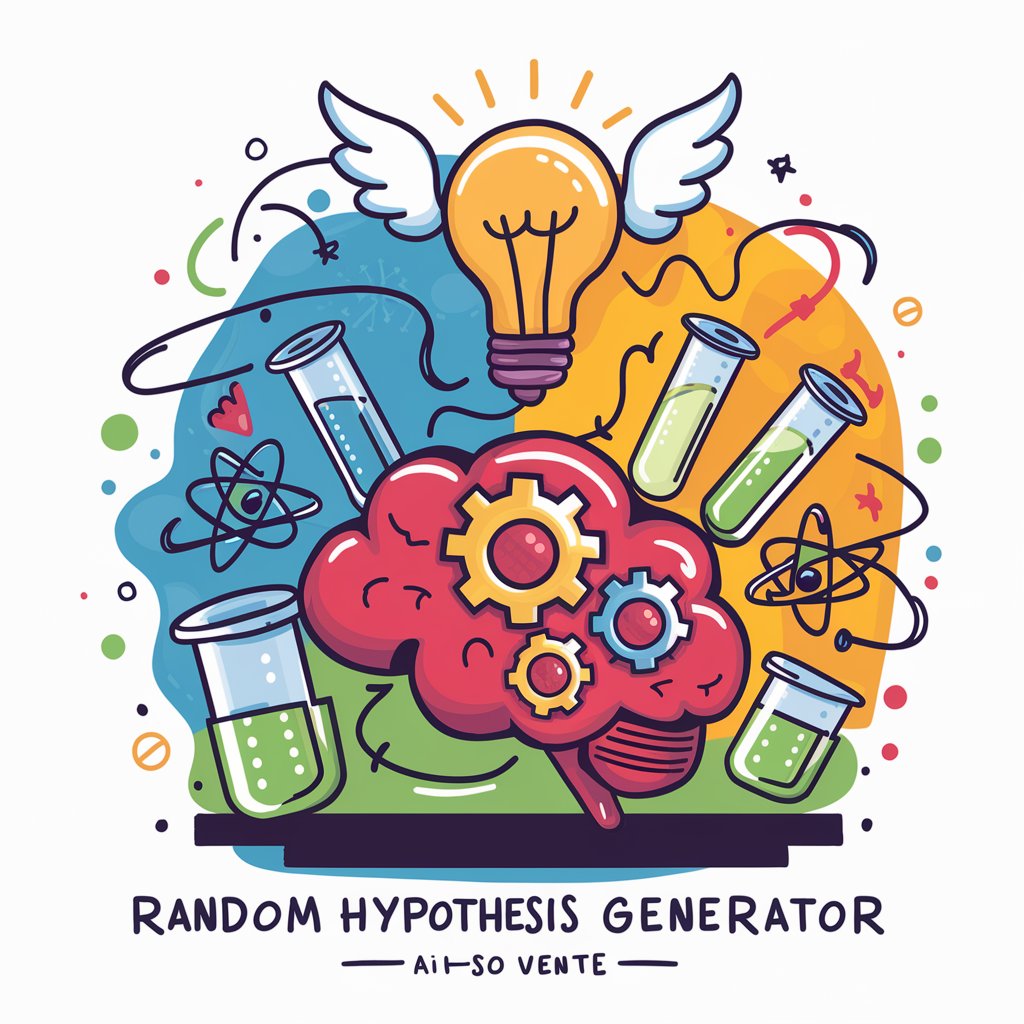
Hypothesis and Prediction Clarifier
Clarifying Scientific Reasoning with AI
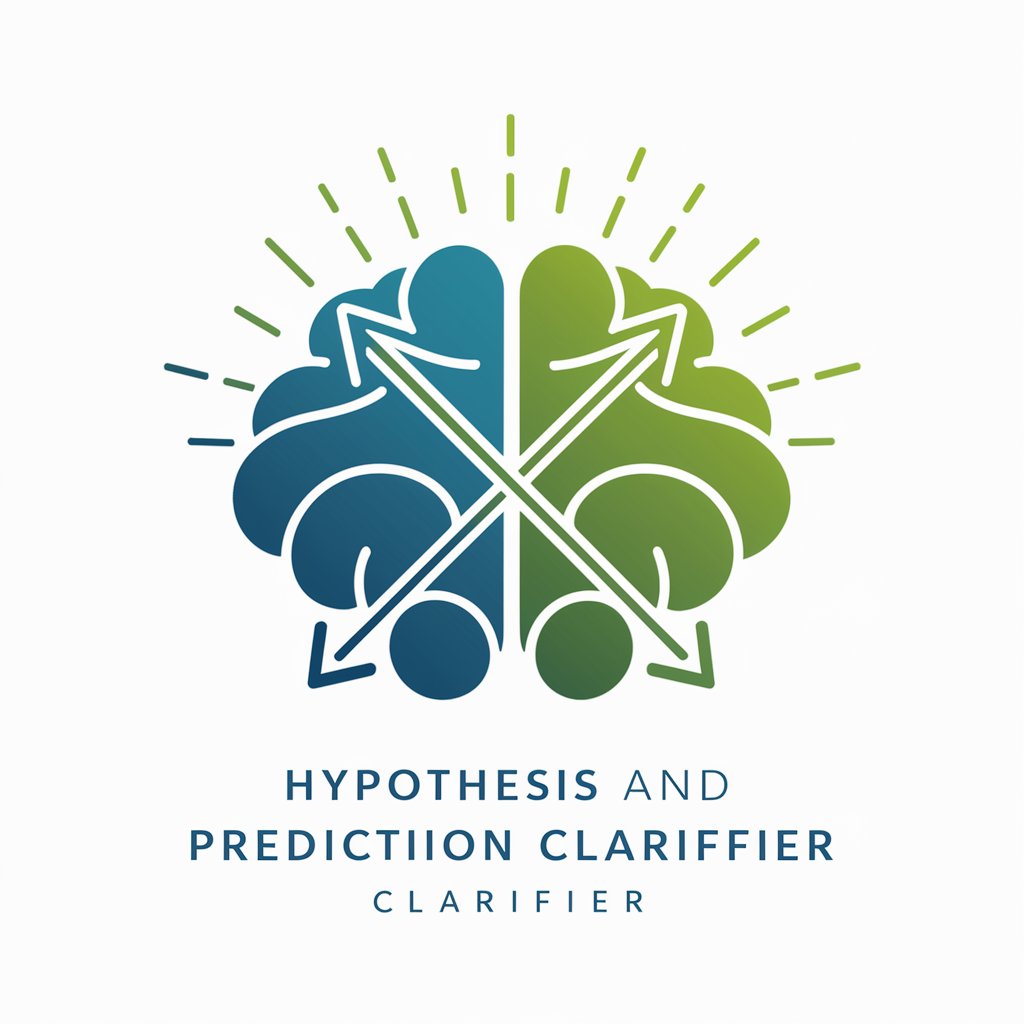
Universal Consciousness Hypothesis
Exploring consciousness through AI

Hypothesis Testing
AI-Powered Hypothesis Testing Simplified
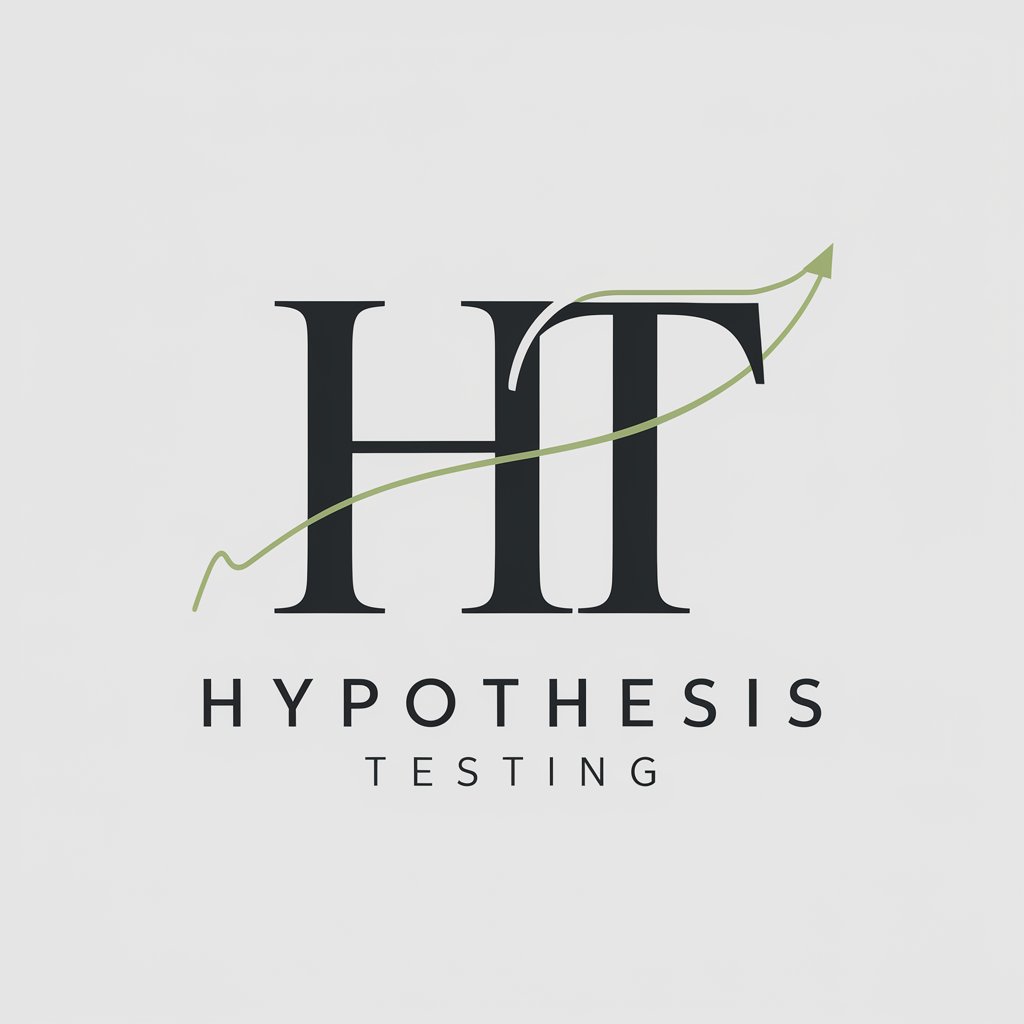
The Mathematical Consciousness Cycle Hypothesis
Unveiling consciousness through mathematics

A 21st Century Poet
Revolutionizing poetry with AI.

FAQs on Hypothesis Harvester
What types of documents can Hypothesis Harvester analyze?
Hypothesis Harvester is designed to analyze academic papers, research articles, and scientific documents, focusing on identifying and summarizing hypotheses.
How does Hypothesis Harvester handle complex hypotheses?
It dissects complex hypotheses by breaking down their components, such as cause and effect, and identifies moderators or mediators, presenting them in a structured format.
Can Hypothesis Harvester suggest new research questions?
While primarily focused on analyzing existing hypotheses, it can highlight gaps and suggest potential areas for further research based on the extracted hypotheses.
Is Hypothesis Harvester suitable for non-academic use?
Though optimized for academic research, it can be useful in any scenario where understanding the relationships or implications within a text is necessary.
How does Hypothesis Harvester improve over time?
It uses feedback from users to refine its analysis, improve accuracy, and enhance its understanding of complex research hypotheses.
